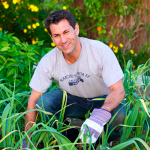Fielding Questions From Your Kids
 Every parent has the same experience – becoming bombarded with a plethora of questions from their children arising shortly after they learn to talk and increasing during the childhood years and then tapering down during adolescence. Within each of these interactions are also concerns about what is the “right” or “wrong” thing to say based on both the message that the parent wishes to convey matched with a concern about how their child will digest the information.
Every parent has the same experience – becoming bombarded with a plethora of questions from their children arising shortly after they learn to talk and increasing during the childhood years and then tapering down during adolescence. Within each of these interactions are also concerns about what is the “right” or “wrong” thing to say based on both the message that the parent wishes to convey matched with a concern about how their child will digest the information.
To complicate this further is that the very same question that a 4 year old asks their parent has very different meaning than the same question asked by a 10 year old and the response from the parent needs to take into consideration these developmental differences. Although children have an inborn drive to learn about his or her world, their young minds are only able to digest and utilize information that they are able to comprehend art any particular age. We called this “functional development”. For example, if a child is given “too much information, or too much graphic information” at a too young of age, the well intended information may actually cause more harm than good. On the other hand too little information, or a complete avoidance of the topic, may leave the child feeling “bad” about what they asked or lead them to continue to seek the information which may result in them getting feedback that the parent may or may not feel comfortable with.
The key point here is that when children ask questions, they need answers as they attempt to understand their minds and the world around them. The role of the parent is to supply them with enough adequate information, but not to either overwhelm them with detail which is beyond their developmental level, or not give them enough information to satisfy their curiosity.
But, how do parents know what is too much or just enough, based on the developmental level of their child? Most parents do not have degrees in child development and there is no cookbook about right versus wrong answers. Part of the answer is common sense and the other is trying to learn more about what children at different ages are able to comprehend. Many times, parents also learn from trial and error. Here, they may answer a particular question and the result then makes the child more anxious. Typically, this type of experience then helps the parent learn that their well-intended answer may have been too much for their child and the next time they are more careful. On the other hand, if the answer is not sufficient enough for the child, he or she will continue to repeat him or herself until the parent meets their need.
Most parents want to be honest and give adequate information and this is a good rule of thumb. What is considered adequate however has to be adjusted to the age and developmental level of the child however. As mentioned earlier, too much, or too graphic, is too much. Therefore, answers need to be clear and informative but not beyond what your child can understand at his or her age. For example, when a 5 year old asks their mom or dad “where babies come from”, which is a frequent and important question (they are asking about themselves), giving them information about sex and body parts would be potentially overwhelming for them and could cause anxiety and even impulsivity. This is because this type of reasoning is beyond what they are able to comprehend and when children are exposed to information too advanced for them, symptoms can develop – we see the same types of manifestations when children are exposed to television too graphic for them to understand. Instead, teaching them about how later in life when mothers and fathers love each other they have children to celebrate their love for one another, is often enough for the inquisitive 5 year old to feel satisfied with their question. In fact, you, this type of answer even makes them feel special at the same time!
The same question however posed by a pre-adolescent would warrant a different response based on the pre-teen understanding more about bodies and sexual differences between the sexes. Here, parents can begin to talk to their children about their bodies, lay some ground work about sexuality, and talk about the ideas of love, caring, and maturity. For discussions about sexuality and bodies with the pre-teens (10 and higher) and adolescents, I do always suggest that the parent of the same sex be the one to chair the meeting to lessen potential anxiety for the child. There are also a variety of books written for the pre-teens and teenagers about sexuality which can be very helpful for the inquisitive child. However, once again, parents need to be careful to both not give too much or too little information at this age as well. Reading over such a book before handing it over to your child is another good idea. In this regard, talking too much about “sex” can be too much for them, but if too little information is disclosed will lead to discomfort and potential frustration. Again, sensible, matter of fact, and “just enough” to satisfy the question is the best method. Children are wonderful at telling us if they are not satisfied – they will just keep asking if we do not give them what “they need”. When we do however, they move on until the next question emerges.
Key Points:
- Do not avoid answering your child’s questions.
- Answer questions with consideration of their age and developmental level.
- Do not give them “too much” information, but just enough to satisfy them.
- Refer to third party materials to help you teach them if necessary.
- The same question will arise again at later dates allowing for more information..
______________________________________________________________
Dr. Keith Kanner is a Licensed and Board Certified Clinical Child, Adolescent, and Adult Psychologist and Psychoanalyst. In addition to a full-time private practice in Rancho Santa Fe, California, he is an Assistant Clinical Professor of Psychiatry in the School of Medicine at the University of California San Diego where he teaches both human development and also trains medical students how to better understand and relate to their patients. He also serves as the Director of Clinical Counseling for La Jolla Country Day School in La Jolla, California, and is a Clinical Professor at The San Diego Psychoanalytic Society and Institute. Dr. Kanner also sits on the National Board of Directors for Kids Korps USA, which is the largest organization in the country that teaches children and adolescents the importance of volunteering to help the community at large. As a father of three children, he is also a dedicated baseball, football, and soccer coach.










You must be logged in to post a comment Login